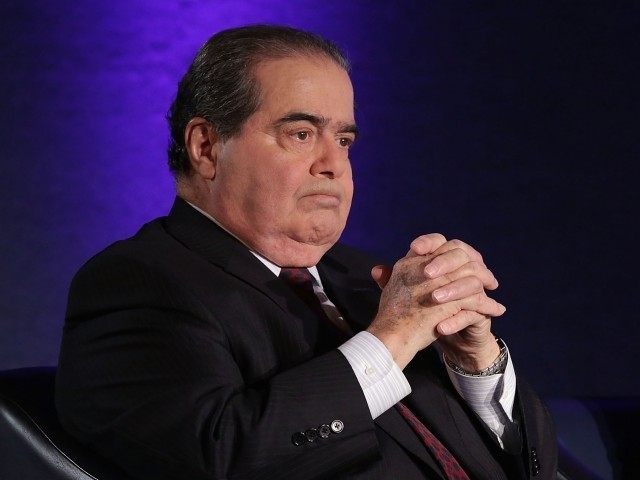In all the Sturm und Drang following last Friday’s landmark U.S. Supreme Court decision that discovered a right to same-sex marriage in the American Constitution, a fascinating and disturbing observation by Justice Antonin Scalia was largely overlooked: U.S. Protestants had no say whatsoever in the new social order enacted by the Court.
In his nine-page dissent, Scalia ripped into the majority opinion, calling it a “judicial Putsch” that poses a “threat to American democracy.” He added that a “system of government that makes the People subordinate to a committee of nine unelected lawyers does not deserve to be called a democracy.”
The Court’s “naked judicial claim to legislative—indeed, super-legislative—power” bulldozed the right of the People to self-government, said Scalia, who then turned to the peculiarly unrepresentative composition of the Supreme Court itself.
Scalia noted that “the Federal Judiciary is hardly a cross-section of America.”
“Take, for example, this Court,” he said, “which consists of only nine men and women, all of them successful lawyers who studied at Harvard or Yale Law School. Four of the nine are natives of New York City. Eight of them grew up in east-and west-coast States. Only one hails from the vast expanse in-between.”
Scalia then observed that not “a single evangelical Christian (a group that comprises about one quarter of Americans), or even a Protestant of any denomination” is to be found on the Court, which currently consists of six Catholics and three Jews.
How can such an elite, homogeneous committee presume to legislate over a constituency that finds itself as wholly unrepresented as do American Protestants? he suggested.
“The strikingly unrepresentative character of the body voting on today’s social upheaval would be irrelevant if they were functioning as judges,” Scalia continued. “But of course the Justices in today’s majority are not voting on that basis.”
To underscore the gravity of the Court’s action, Scalia compared it to England’s treatment of the American colonies before the war of independence. The justice said that in its hubris, Friday’s majority decision had perpetrated a more serious offense than the one that ignited the American Revolution.
Indeed, “to allow the policy question of same-sex marriage to be considered and resolved by a select, patrician, highly unrepresentative panel of nine is to violate a principle even more fundamental than no taxation without representation: no social transformation without representation,” he said.
“Today’s decree says that my Ruler, and the Ruler of 320 million Americans coast-to-coast, is a majority of the nine lawyers on the Supreme Court,” Scalia said.
Follow Thomas D. Williams on Twitter @tdwilliamsrome.

COMMENTS
Please let us know if you're having issues with commenting.